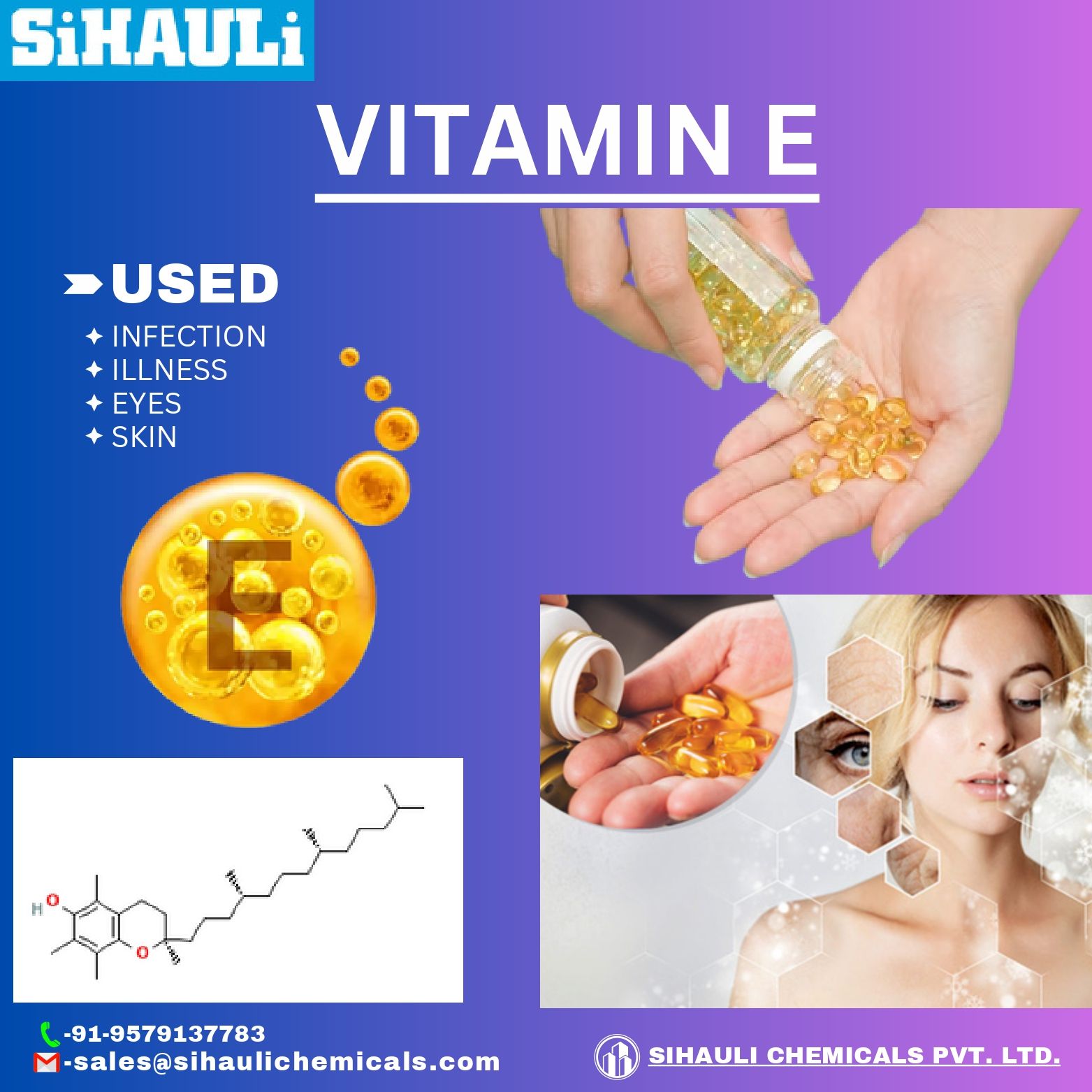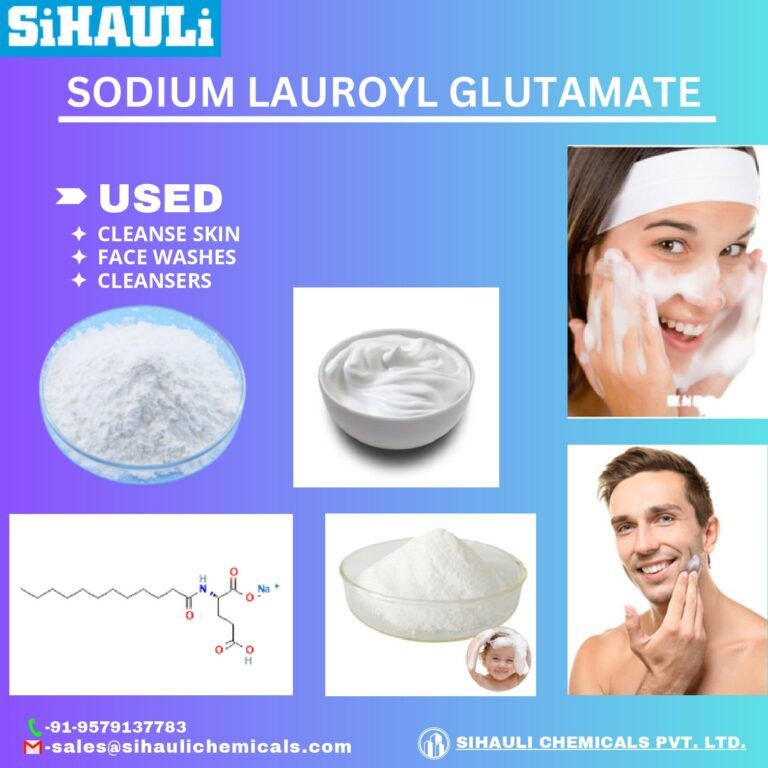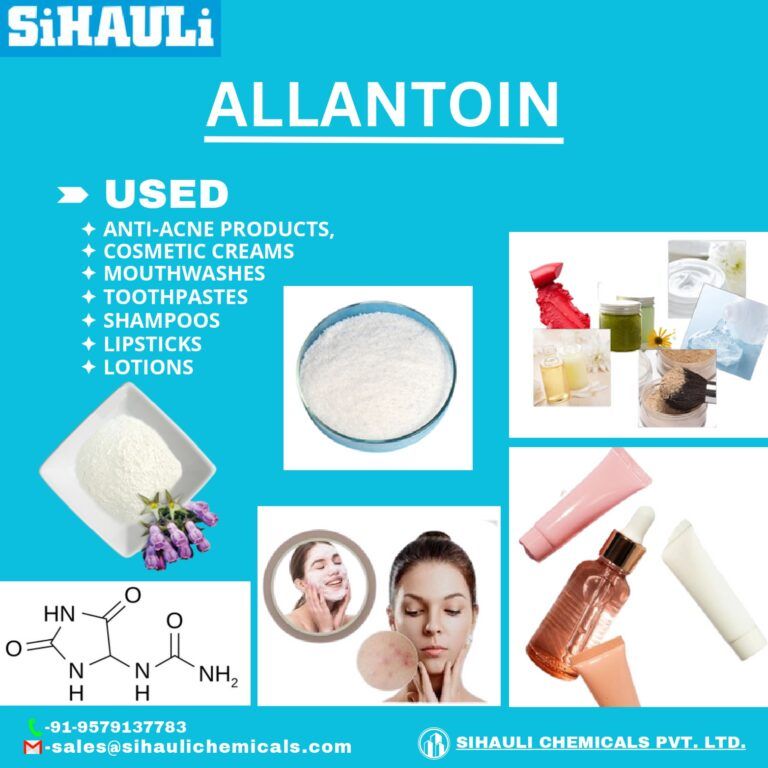Vitamin E helps maintain healthy skin and eyes, and strengthen the body’s natural defence against illness and infection (the immune system).
Vitamin E is a vitamin that dissolves in fat. It is found in many foods including vegetable oils, cereals, meat, poultry, eggs, and fruits.
Vitamin E is an important vitamin required for the proper function of many organs in the body. It is also an antioxidant. Vitamin E that occurs naturally in foods (RRR-alpha-tocopherol) is different from man-made vitamin E that is in supplements (all-rac-alpha-tocopherol).
Vitamin E is used for treating vitamin E deficiency, which is rare, but can occur in people with certain genetic disorders and in very low-weight premature infants. Vitamin E is also used for many other conditions, but there is no good scientific evidence to support many of these other uses.
Uses & Effectiveness ?
Effective for
An inherited condition that affects motor control (ataxia with vitamin E deficiency or AVED). Taking vitamin E by mouth is effective for treating vitamin E deficiency due to this genetic movement disorder.
Vitamin E deficiency. Taking vitamin E by mouth is effective for preventing and treating vitamin E deficiency.
Possibly Effective for
Alzheimer disease. Taking vitamin E supplements by mouth doesn’t seem to prevent Alzheimer disease from developing. But in people who already have Alzheimer disease, taking vitamin E along with some anti-Alzheimer medicines might slow down memory loss.
A blood disorder that reduces levels of protein in the blood called hemoglobin (beta-thalassemia). Taking vitamin E by mouth seems to benefit children with this blood disorder.
Menstrual cramps (dysmenorrhea). Taking vitamin E by mouth for 2 days before bleeding and for 3 days after bleeding starts seems to decrease pain and reduce menstrual blood loss.
An inherited disorder that causes red blood cells to break down in response to stress (G6PD deficiency). Taking vitamin E by mouth, alone or together with selenium, might benefit people with this condition.
Bleeding within the skull (intracranial hemorrhage). Taking vitamin E by mouth seems to reduce the risk of bleeding in the skull in premature infants.
Bleeding into or around the fluid-filled areas (ventricles) of the brain (intraventricular hemorrhage). Giving vitamin E by mouth to premature infants can reduce the risk for bleeding into the brain. But giving high doses of vitamin E might increase the risk for a serious blood infection (sepsis) in these infants.
Reduced benefit of nitrate therapy that happens when nitrates are used all day (nitrate tolerance). Taking vitamin E by mouth daily can help prevent nitrate tolerance.
Swelling (inflammation) and build up of fat in the liver in people who drink little or no alcohol (nonalcoholic steatohepatitis or NASH). Taking vitamin E by mouth daily seems to improve inflammation and liver markers of this form of liver disease in adults and children.
Premenstrual syndrome (PMS). Taking vitamin E by mouth seems to reduce anxiety, craving, and depression in some people with PMS.
A movement disorder often caused by antipsychotic drugs (tardive dyskinesia). Taking vitamin E by mouth seems to improve symptoms associated with this movement disorder.
Possibly Ineffective for
An eye disease that leads to vision loss in older adults (age-related macular degeneration or AMD). Taking vitamin E by mouth, alone or along with other antioxidants, isn’t effective for preventing or treating age-related vision loss.
Lou Gehrig’s disease (amyotrophic lateral sclerosis or ALS). Taking vitamin E (alpha-tocopherol) by mouth along with conventional medication doesn’t affect function or increase survival rates in people with ALS.
Chest pain (angina). Taking vitamin E by mouth might have some effect on the functioning of blood vessels, but it doesn’t appear to reduce chest pain.
Hardening of the arteries (atherosclerosis). Taking vitamin E (RRR-alpha-tocopherol) by mouth doesn’t appear to reduce the hardening of arteries in people with this condition.
Eczema (atopic dermatitis). Taking vitamin E by mouth, alone or along with selenium, doesn’t improve symptoms of eczema.
Hot flashes in people treated for breast cancer. Taking vitamin E by mouth doesn’t seem to reduce hot flashes in females who have had breast cancer.
A lung disease that affects newborns (bronchopulmonary dysplasia). Taking vitamin E by mouth doesn’t seem to reduce an infant’s risk for developing this lung disease.
Cataracts. Taking vitamin E by mouth doesn’t prevent cataracts.
Nerve damage in the hands and feet caused by cancer drug treatment. Taking vitamin E before and after treatment with certain cancer drugs does not reduce the risk of nerve damage.
Colon cancer, rectal cancer. Taking vitamin E by mouth doesn’t reduce the risk for colon cancer or rectal cancer.
Heart failure and fluid build up in the body (congestive heart failure or CHF). Taking vitamin E by mouth for 12 weeks doesn’t seem to improve heart function in people with CHF. It also doesn’t decrease the chance of developing CHF.
Head and neck cancer. Taking vitamin E by mouth daily doesn’t seem to reduce the risk of head and neck cancer returning. In fact, it might actually increase the risk of the cancer returning. People with head and neck cancer should avoid daily vitamin E supplements in doses of more than 400 IU daily.
High blood pressure. Taking vitamin E by mouth doesn’t seem to lower blood pressure in people already taking blood pressure medications.
Infants with birth weight below the 10th percentile due to inadequate nutrition. Taking vitamin E by mouth throughout pregnancy doesn’t lower the risk of having a baby with a low birth weight because of inadequate nutrition while in the womb.
Liver disease. Taking vitamin E by mouth doesn’t reduce the risk of death in people with liver disease.
White patches inside the mouth that are usually caused by smoking (oral leukoplakia). Taking vitamin E by mouth for up to 7 years doesn’t reduce the risk for mouth sores in males who smoke.
Osteoarthritis. Taking vitamin E by mouth doesn’t seem to decrease pain or stiffness in people with osteoarthritis. Vitamin E also doesn’t seem to prevent osteoarthritis from becoming worse.
Pancreatic cancer. Taking vitamin E by mouth, alone or together with other antioxidants such as beta-carotene and vitamin C, doesn’t seem to reduce the risk for pancreatic cancer.
Parkinson disease. Taking vitamin E by mouth doesn’t seem to reduce or slow the worsening of Parkinson disease symptoms.
A type of throat cancer (pharyngeal cancer). Taking vitamin E by mouth doesn’t seem to reduce the risk of mouth or pharyngeal cancer in people with diabetes.
A pregnancy complication marked by high blood pressure and protein in the urine (pre-eclampsia). Taking vitamin E by mouth doesn’t seem to reduce the risk of high blood pressure during pregnancy.
Preterm birth. Taking vitamin E by mouth during pregnancy doesn’t lower the risk for preterm birth.
Prostate cancer. Taking vitamin E by mouth doesn’t reduce the risk for prostate cancer. It might actually increase the risk in some people.
Infection of the airways. Taking vitamin E by mouth doesn’t seem to help prevent respiratory tract infections. It also doesn’t seem to lessen symptoms in people with a respiratory infection.
An inherited eye condition that causes poor night vision and loss of side vision (retinitis pigmentosa). Taking vitamin E by mouth doesn’t seem to slow vision loss, and might actually increase vision loss in people with this condition.
Scarring. Applying vitamin E to the skin doesn’t seem to reduce scarring after surgery.
Stillbirth. Taking vitamin E by mouth throughout pregnancy doesn’t lower the risk of stillbirth.
Likely InEffective for
Breast cancer. Increasing vitamin E intake from the diet or taking vitamin E supplements by mouth doesn’t reduce the risk for breast cancer.
Cancer. Taking vitamin E by mouth doesn’t lower overall cancer risk.
Heart disease. Taking vitamin E by mouth doesn’t prevent heart disease in healthy people or those at risk. It also doesn’t seem to prevent stroke or heart attack in people with heart disease.
Death of an unborn or premature baby. Giving vitamin E by mouth to preterm infants doesn’t seem to reduce the risk of death in the infant.
A type of benign (non-cancerous) breast disease (fibrocystic breast disease). Taking vitamin E by mouth for 2-3 months doesn’t help treat fibrocystic breast disease.
Lung cancer. Taking vitamin E by mouth for up to 8 years doesn’t reduce the risk of developing lung cancer in males who smoke.
Death from any cause. Taking vitamin E by mouth doesn’t reduce the risk of death from any cause.
Growth and development in premature infants. Giving vitamin E by mouth doesn’t seem to prevent or treat anemia in preterm infants.




